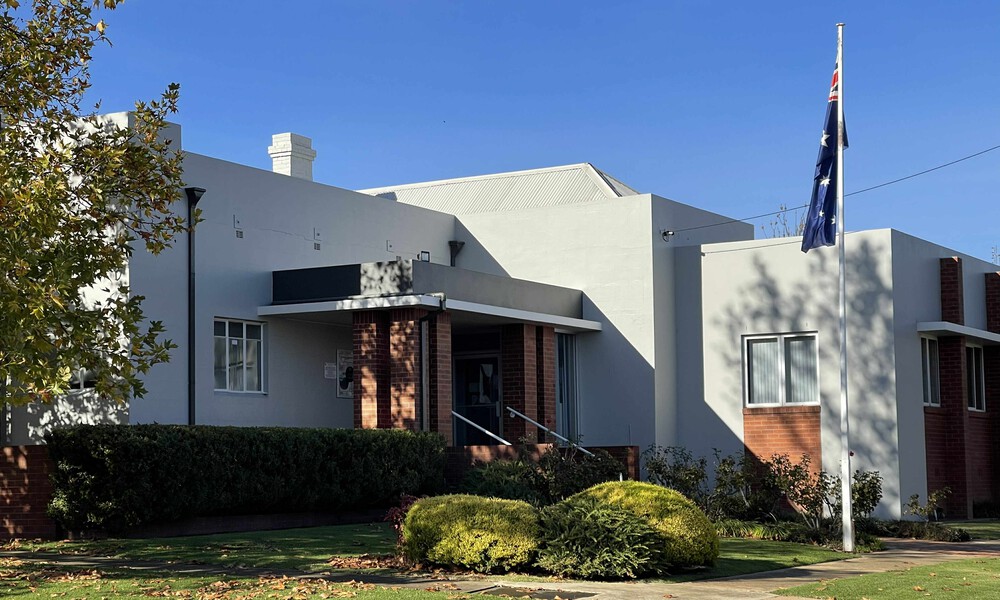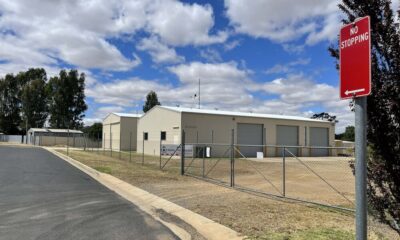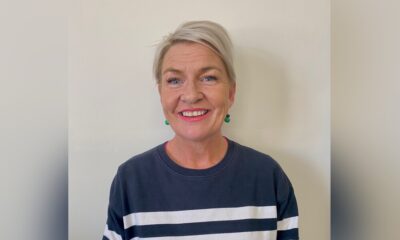Local
Roads, Rates, and Religion? Council revives Lord’s Prayer, but not all say ‘Amen’

JUNEE Shire Council has voted to formally reintroduce the Lord’s Prayer at the start of its monthly meetings — a contentious move that passed by the narrowest of margins and reignited debate over the role of religion in local government.
Carried 4–3 at Tuesday’s council meeting, the motion, brought by Councillor Andrew Clinton and seconded by Councillor Ingrid Eyding, will see the Christian prayer recited — by those who choose — before the Acknowledgement of Country.
But what was expected to be a routine item on the agenda became a divisive 15-minute debate over religious tradition versus civic neutrality, prompting passionate speeches from both sides of the chamber.
◾️ “IT REFLECTS OUR COMMUNITY” — or DOES IT?
Cr Clinton defended the motion on the grounds of tradition and community identity, citing state and federal parliaments where Christian prayers continue to be said at the start of proceedings.
“I was thinking long and hard about whether I progress down this path, and I decided I would have to do it because of my personal belief,” he said.
He argued that reintroducing the prayer aligns with Junee’s demographics, pointing to Census data showing that the majority of residents identify with Christianity.
“We live in a town that is basically Protestant in denomination,” Cr Clinton said. “Go and have a look at the number of people who declared they had a religion in the Census — it’s quite significant.”
According to the 2021 Census, more than 55% of Junee residents aligned with a Christian denomination — well above the national average.
More than 26% of people (1,718) identified as Catholic, 18.8% (1,205) as Anglican, and 6.4% (411) as Presbyterian, Reformed or Uniting.
Meanwhile, 23.1% (1,481) of residents said they had no religion, and 18.8% (1,221) chose not to answer the question — meaning nearly 42% of Junee locals either do not identify with a religion or preferred not to disclose one.
Cr Clinton acknowledged the prayer wouldn’t resonate with everyone but emphasised it was not compulsory: “They can say their own prayer while this one is being said.”
◾️ ‘THIS IS NOT A CHRISTIAN CHAMBER’
Cr Matt Austin delivered the most detailed opposition to the motion, warning it risked excluding residents who don’t share those beliefs.
He delivered an impassioned speech, urging council to consider more inclusive alternatives.
“We are a nation with a lot of Christians, not a Christian nation per se,” Cr Austin said.
“In Australia, we’re free to hold and practice any religious belief — or none. Choosing one form of religious expression in this chamber, by definition, excludes those who don’t share those beliefs.”
He also warned the move could undermine the civic neutrality of local government.
“In a pluralistic society, we as councillors should be wary of implied endorsement of a certain set of beliefs.”
“Particularly at the moment, we only need to look at the United States to see what happens when the boundary between church and state becomes blurred.”
A celebrant of 24 years, Cr Austin also challenged the validity of using the Census as a policy guide, arguing the religion question was optional and imprecise.
“The question was badly put,” he said. “It could include people who didn’t want to nominate a particular church, or it could also be people who think the whole thing is a load of whatever.”
“Yes, there’s a greater proportion of believers in the shire than nationally — but there’s also a good proportion who aren’t.”
He acknowledged that for some, the Lord’s Prayer is meaningful and comforting — but for others, it’s a source of pain or alienation. And for many, it’s simply irrelevant.
Instead, Cr Austin proposed a moment of silent reflection at the start of meetings — a more inclusive option embraced by other councils.
“Whether we believe in Jesus, Allah, Ramah, or that the world is controlled by the lizard people — surely we could all do with a little bit of time for reflection.”
◾️ A “SPIRITUAL COMPASS” STILL WORTH REPEATING?
Cr Eyding passionately backed the motion, calling the Lord’s Prayer “profoundly relevant” and “a moral compass” in an increasingly fragmented world.
“In an era marked by stress and disconnection, the Lord’s Prayer grounds individuals in hope and purpose,” she said. “It strengthens community… bridges cultural and linguistic divides… and unites diverse groups in shared values.”
“I don’t know when or why it was removed from Council,” she added, “but it still has a place in Australia’s history, heritage and culture. We can all use a reminder — especially when we gather to make decisions — that there is a God, and it’s not me.”
Mayor Bob Callow, while initially neutral, admitted Cr Eyding’s speech gave him pause.
“I have my own strong belief,” he said, “but I am concerned we’re sending a message that we only serve one particular faith.”
Though he ultimately voted against the motion, the Mayor backed Cr Austin’s suggestion of a silent reflection — giving councillors space to pray, meditate, or simply gather their thoughts.
“I do like the idea of a moment of reflection at the beginning,” he said, “at which time you may say this prayer — or any other prayer that you like.”
◾️ A LOCAL ISSUE AMIDST A NATIONAL DEBATE
The final vote saw Crs Clinton, Eyding, Pam Halliburton and David Carter in favour, while Mayor Callow joined Crs Austin and Robin Asmus in opposition.
Deputy Mayor Marie Knight and Councillor Brigid Austin were absent from the meeting.
The motion’s passage comes at a time when councils across the country are increasingly reviewing — and in many cases removing — formal prayers from official proceedings in favour of more inclusive practices.
While Junee leans into religious tradition, neighbouring Wagga Wagga City Council voted in August 2022 to replace its long-standing council prayer with a neutral civic reflection, designed to respect a broader range of beliefs.
Wagga’s former council prayer read in part:
“Almighty God, help protect our mayor, elected councillors and staff… to govern with justice, integrity… and preserve harmony. Amen.”
It was replaced with:
“Councillors, let us in silence reflect upon our responsibilities to the community which we represent, and to all future generations…”
The move, though controversial at the time, was part of a growing trend among Australian councils to separate formal governance from religious expression.
In 2023, the City of Greater Bendigo replaced its prayer with a statement of civic reflection. In 2024, the Inner West Council in Sydney replaced the Lord’s Prayer with an Acknowledgement of Diversity.
Junee Shire Council’s vote may well reflect the town’s majority, but the reality remains that nearly half of Junee’s population holds no religion or chose not to disclose one — a figure that cannot be ignored.
Whether the move reflects community values or a councillor’s personal crusade is now a matter for public judgment.

















Pingback: 2025: A year that tested, changed and united Junee